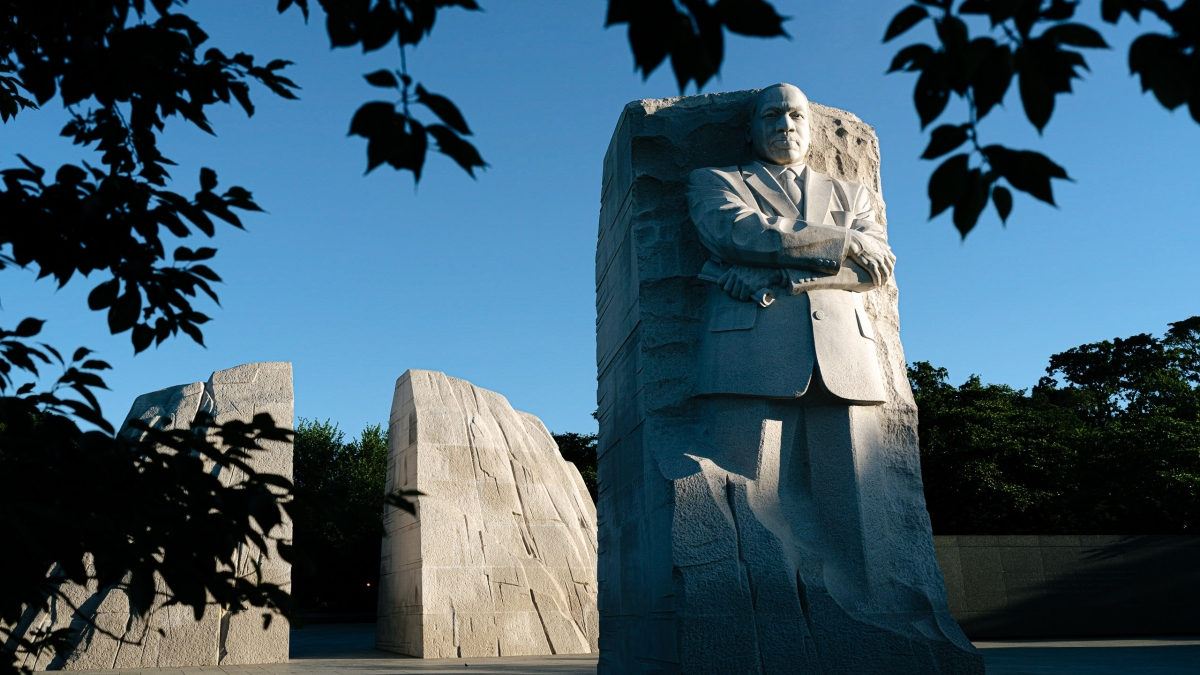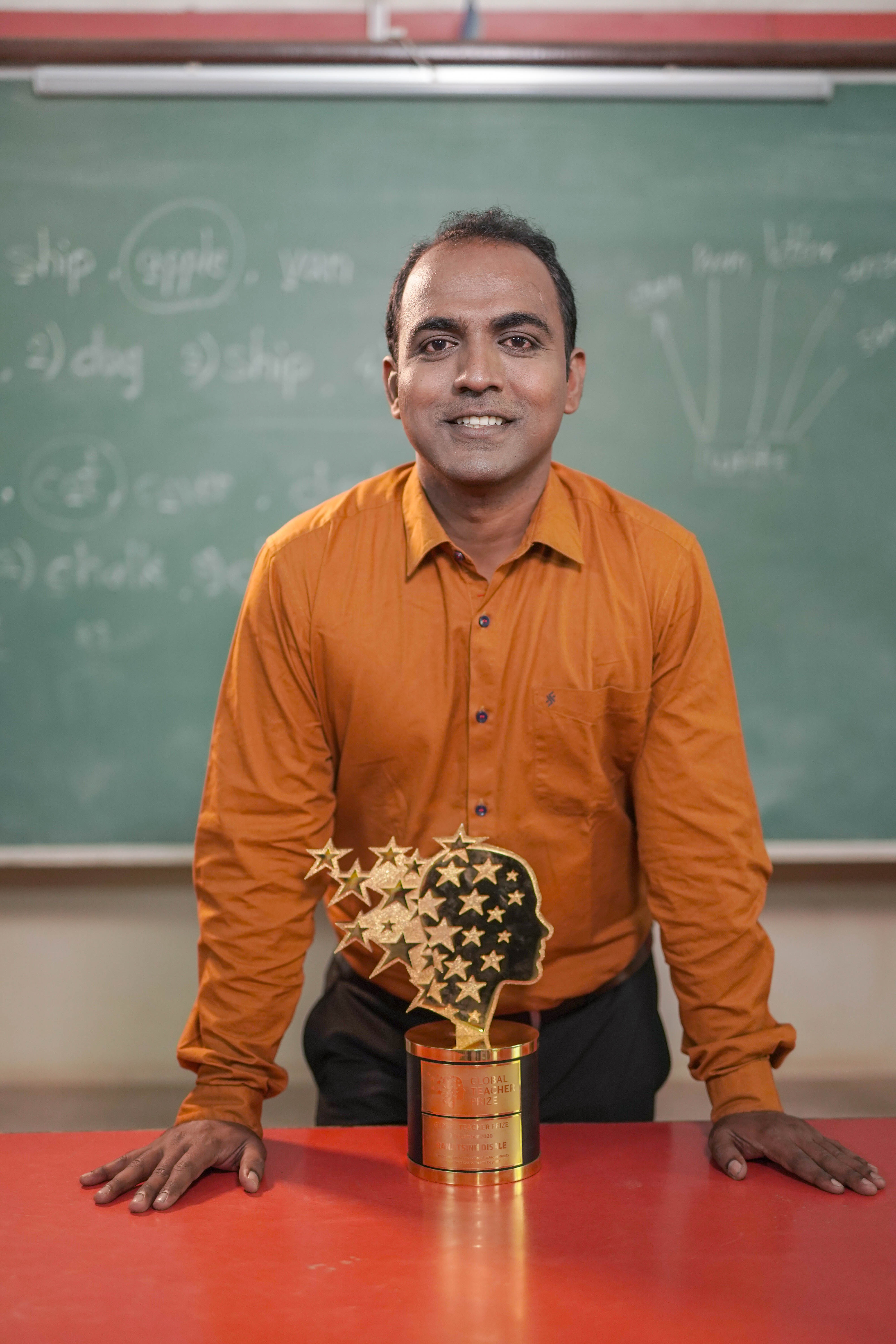When Ranjitsinh Disale heard that the theme of this year's Martin Luther King celebration at ASU was "Every Story Matters," he knew he needed to submit an entry for a virtual storybook that was being composed.
“That really resonated with me,” said Disale, a Fulbright Scholar who is attending Arizona State University.
It resonated because as a teacher in India since 2009, Disale understands that no matter the circumstance, no matter the conditions, every story matters.
His first teaching job was at Zilla Parishad Primary School, a dilapidated building sandwiched between a storeroom and cattle shed. It was difficult to get girls to come to school; most were from tribal communities where teenage marriage was common and attendance was sometimes as low as 2%.
Today, thanks to Disale’s efforts, attendance among young girls is 100% and there are no teenage marriages in the village.
That’s just part of Disale’s story, which was one of nine entries chosen for the event, which will be held from 6 to 7:30 p.m. on Thursday, Jan. 26, in the Changemaker Space at the Memorial Union on ASU's Tempe campus.
Changemaker Central, which is hosting the event, is a community of like-minded students who are leading social change in the local and global community.
Other entry winners — all of whom are invited to read their entries — are students Joanne Ma, Joshua Pardhe, Bobbi Cotton, Somanath Malakari Kambale, Pallav Raval, Augusto Ariel Aguilera Ramirez and Nupur Hassan, and ASU senior utility specialist Louie Flores.
Disale, ironically, never intended to be a teacher. His life dream was to become an engineer. His father, however, pushed him to join a teacher’s training college in India. Disale thought he would attend for six months and then get back into engineering.
“But God had some different plan for me,” he said. “I started enjoying and experiencing what teachers can do for students and what change they can make in the lives of students.”
Disale has done exactly that. In addition to improving educational opportunities for young women, Disale created QR-coded textbooks for his school that allowed students to learn through audio and visual content. The idea was so successful that in 2017, India’s Ministry of Human Resource and Development announced it would introduce QR-coded textbooks across the state for grades one through 12.
That same year, Disale was reading a Global Peace Index article about the millions of dollars India, Pakistan, Israel, Palestine, Iraq and Iran spend on the military, yet “they always keep battling each other.”
“I thought, ‘Instead of spending money on the military, if these countries would have invested 50% of that money into education, they might have solved their problems,’” Disale said.
Motivated, Disale created “Let’s Cross the Borders,” a Skype-based, six-week program that connects students in those countries in conflict.
The program, which now reaches 18,000 children in eight countries, aims to ease tensions by educating young people about other cultures, countries and ways of life.
Disale calls the program Peace Education.
“It’s all about teaching strategies, how to tackle violence non-violently,” said Disale, adding his focus is on students between 14 and 23 years old because their thought patterns have not become ingrained from years of conflict. “The world has become less peaceful every year, right? So we need to teach students how Mahatma Gandi followed the principle of non-violence and that’s how India got freedom, and how Martin Luther King Jr. avoided violence and he was the voice of Black Americans.”
Ranjitsinh Disale with his Global Teacher Prize. Photo courtesy Ranjitsinh Disale
For his efforts, Disale in 2020 was awarded the prestigious Global Teacher Prize, which recognizes teachers making an outstanding contribution to their profession. Upon winning the award, Disale did something that had never been done before: He announced he would share 50% of his $1 million prize with the other nine finalists.
“I always want to support teachers, the best teachers, those who are doing incredible work in the classroom and changing the lives of students,” Disale said.
In December 2021, Disale was one of 40 teachers across the world to receive the Fulbright DAI scholarship awarded by the U.S. government. The scholarship allowed Disale to continue his research on peace education at a university in the U.S. for one year and the International Exchange and Exchanges Board — an international, nonprofit organization that specializes in global education and development — placed him at ASU in August 2022.
Disale’s mission — at least for the next five years, he said — is twofold: Encourage young people to become teachers and grow respect for teachers in society. Disale said he met Arizona Sen. Mark Kelly recently and encouraged Kelly to create some sort of “Respect Teachers” bill in the Senate.
“Back in India, teachers are highly respected,” he said. “Teachers are given incentives as well. But in Arizona, I found something different. Teachers are not always respected. It’s true; teachers are leaving their jobs. So we need some sort of concrete solution. It can’t be just words. Introduce a bill that says this is how we’re going to respect you.”
If conditions and salaries for teachers improve, Disale said, he’s convinced more high school and college students will choose the profession he chose; the profession his father, fortunately, chose for him.
“The world needs teachers of the 21st century because students are of the 21st century,” he said. “I’m on a mission to inspire teachers and to inspire the young generation of this era to go into the teaching sector.”
Because, as Disale knows, every story matters.
Top photo: Memorial of Martin Luther King in Washington, D.C. Photo by Wilson Rodriguez/Pexels
More Arts, humanities and education

Upcoming exhibition brings experimental art and more to the West Valley campus
Ask Tra Bouscaren how he got into art and his answer is simple.“Art saved my life when I was 19,” he says. “I was in a dark place and art showed me the way out.”Bouscaren is an …

ASU professor, alum named Yamaha '40 Under 40' outstanding music educators
A music career conference that connects college students with such industry leaders as Timbaland. A K–12 program that incorporates technology into music so that students are using digital tools to…

ASU's Poitier Film School to host master classes, screening series with visionary filmmakers
Rodrigo Reyes, the acclaimed Mexican American filmmaker and Guggenheim Fellow whose 2022 documentary “Sansón and Me” won the Best Film Award at Sheffield DocFest, has built his career with films that…



